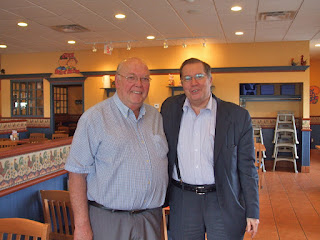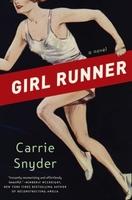I read this book before it was announced for O.B.O.C. It is the true story of a kidnapping in Somalia.
The first half of the book frustrated me as I tried to understand Amanda. She was warned and warned about going to "the most dangerous place in the world". She was told that she would be raped and beheaded. She knew that reporters needed ransom insurance. She saw a corpse along the road that had been beheaded. She ignored everything. I could never relate to her. She had magical thinking. 'It won't happen to me'. And she convinced Nigel to go with her!
I was so distressed about the harm she caused the two of them but also many others, including the families at home.
I pondered Amanda's life and wondered if her childhood is the key to understanding Amanda. She tells in the book about her mother bringing home men who were violent, and I realized that Amanda was used to being in danger. As a young child, she was reading National Geographic to escape, while her mother's boyfriend was punching holes in the wall. I also read that Amanda's mother had been involved with a cult in Japan and was abducted there.
Amanda's connection with her mother interested me. I would expect that she would be upset with her mother for not protecting her in childhood, but she really loved her mother. Did she turn into her mother?
If any of this is true, it would help me understand how she was nonchalant when abducted and able to remember every detail.
*****************************************************************************************************************************************************
Discussion:
This book certainly does initiate conversation because there seem to be two reactions and people line up on one side or the other.
One side says that Amanda was too cocky for her own good. She constantly ignored advice from people who knew what they were talking about, e.g the fixer, Ajoos.
The other side is that she is just adventurous- like the explorers, mountain climbers, and other people who have pushed the limits.
And what about her charity? When Amanda was freed, she began a charity to educate girls in Somalia. I felt that Amanda had put so much pressure on her family that her number one responsibility should have been to repay her debts to them.
Another thought (about her charity for education) is that some of the hostage takers were 'educated'. Does education really solve the problem of Islamic fundamentalism? And why would she desire to return to the place of torture?
Apparently Amanda has been cancelling speaking engagements because 'Adam', who was a key figure in the kidnapping has been arrested, and she is obviously still suffering P.T.S.D. Hope you got the picture. Lots of strong thoughts.
 I sometimes see John smiling while he is reading "The Dancing Cottage" by our friend and ex-pastor, Dan Gibson. Dan and his wife Susan have moved to the east coast and Dan has had some medical challenges. However, the distance has not changed the connection that we have experienced. And John still loves to read Dan's words.
I sometimes see John smiling while he is reading "The Dancing Cottage" by our friend and ex-pastor, Dan Gibson. Dan and his wife Susan have moved to the east coast and Dan has had some medical challenges. However, the distance has not changed the connection that we have experienced. And John still loves to read Dan's words.













































